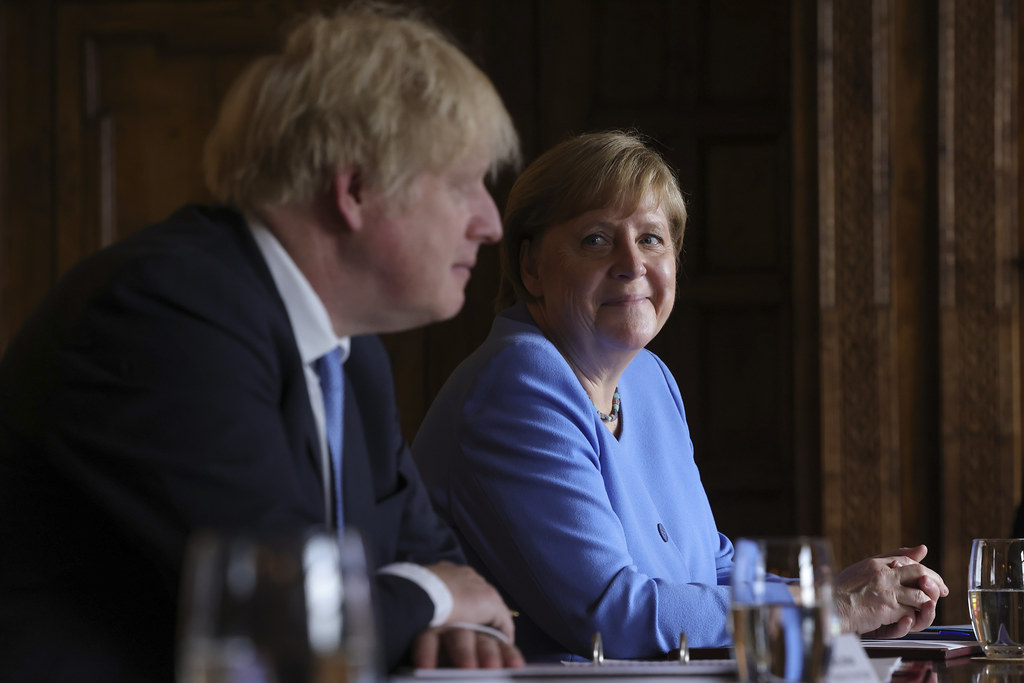Without strengthening, the EU might not exist in 10 years.

“When the tide goes out, you learn who’s been swimming naked,” is the infamous opinion of billionaire investor and philanthropist Warren Buffett.
In the competitive world of ultra-marathon running, they have a similar saying about hills; “On a flat run, everyone is fast; on the hills, you can tell who has undertrained.”
“Undertrained,” is the ultra-marathoner’s polite way of saying “eat my dust, loser.”
Warren Buffett is saying something similar about investors who lose money in a down market, or corporations that lose money during same; “You should have been prepared for that.”
Of course, in the ultra-ultra competitive world of high finance and the stock market, they also have a thing called a “black swan event”. A black swan in economic terms is something utterly unpredictable, something which comes totally out of left field, like an alien invasion.
Or COVID-19.
Not everyone was walloped financially by COVID-19, at least not as yet anyway. Warren Buffett probably did alright, his secret is being prepared for anything. Ultra-marathon runners probably survived, too.
Jeff Bezos profited mightily, even if he did it at the expense of Main Street. The Chinese Communist Party came out ahead.
Other places did not fare as well.
Among them, the European Union.
After Brexit and the ravages of Covid, the idea that E.U. might not exist 10 years from now isn’t a remote possibility; it’s a real one.
None of the global elites had predicted Brexit; or the tenacity with which Britons would fight to extricate themselves from the EU.
But they should have been able to predict it. Some of the member states, like Great Britain, had serious concerns which were not being addressed, year after year; the impact globalism has had on the working-class, massive amounts of debt incurred by other member states, and, whether British progressives are ready to admit it or not, concerns about the impact of unrestricted immigration.
On the other side of Brexit, it looked like other member states rumored to be considering a similar move were still biding their time, willing to use Great Britain as a test case. This “wait and see” approach could have lasted 20 years.
Then COVID-19 happened, and everything changed.
Among the biggest losers of COVID-19, is possibly the European Union.
What neither Buffett nor ultra-marathoners really went into during pithy statements about tides and hills, is what an opportunity such challenges represent. For the well-trained ultra-marathoner, the hills are where they have the best chance of pulling out ahead of their opponents.
COVID-19 was such an opportunity for the leadership of the European Union.
What better to demonstrate to its member states just what strong leadership in Brussels can do? What else is a centralized government for, if not to evenly distribute vital supplies and medicines during a deadly pandemic?
Unfortunately, none of that happened.
“EU nations, despite their pledge to an ever-closer union, reacted selfishly and chaotically once the threat became evident,” concluded Politico Europe by April of 2020. “Health ministers — four of whom quit or were fired during the crisis — bickered. Governments misled Brussels about their preparedness, then hoarded essential equipment and haphazardly shut their borders, disrupting commerce and stranding citizens.”
Instead of rising to the challenge, showing EU member states just what they stand to gain from membership, and how much they might lose were they to leave the fold, the EU devolved into an everyman for themselves melee of red tape, inaction, and mind-boggling ineptitude. Instead of competency, EU leadership demonstrated its limitations- and then some.
Left to fend for themselves during COVID-19, some European Union member states must now be wondering just what they are getting in return for their membership in such an “organization.”
When the tide went out, on the hill of COVID-19, EU leadership did more than drop the ball; it seemed to forget its commitment to globalism.
Now, with the latest election in Germany, and the loss of one of the EU’s staunchest defenders Angela Merkel, Brussels must be considering what impact the next German Chancellor is likely to have on the future of the EU.
If indeed it has one.
The results of the German election show Angela Merkel’s party taking the biggest loss they have ever endured.


Merkel’s Party, the center right Christian Democratic Union, lost 8.8 points since the last election.
On Sunday, Germany’s general election showed conservatives and liberals separated by a mere 1.6 points. That the center-left Social Democrats will have to work with the center-right conservative Christian Democratic Union and Christian Social Union is a given.
It is what the other parties might do which may determine the direction for the country, and possibly set the chessboard for the entire EU. The Greens and the Free Democrats, Germany’s pro-business party, which both finished with respectable showings, garnered 14.8% and 11.5% of the vote.
While the two main parties duke it out, and Free Democrats and Greens enjoy the eager courtship of both, the citizens of Germany will have to wait to see who will lead the country. It is possible that Germany may be stuck with Angela Merkel a little longer, as these negotiations could drag on for months.
The German stock market has responded positively to the election results, probably because the pro-business Free Democrats will play a major role.
In other good news for the EU, Germany’s conservative populist party lost support since the last election as well. This demonstrates that anti-immigrant sentiment hasn’t taken root in Germany since the last election was held.
Most authorities agree that the latest election bodes well for the future of the EU; immediate and long-term. That Germany will remain a staunch defender and member state of the European Union is taken as a given.
But then again, so was Great Britain, once upon a time.
(contributing writer, Brooke Bell)